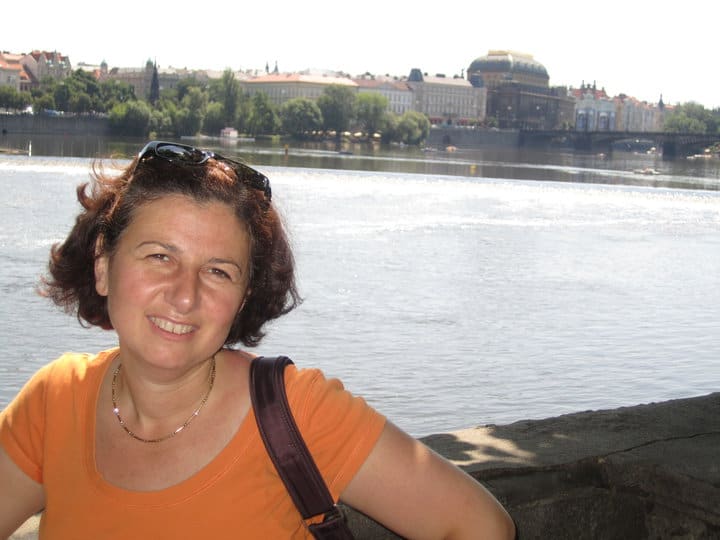In a new interview of Siamanto Academy teachers by their students, Sossi Sousanian, teacher of Eastern Armenian, speaks of her upbringing in Aleppo, her studies in Yerevan and why Armenians tend to be polyglots. Ms. Sousanian, who lives in Budapest, Hungary, spoke with Academy third-year student Salpi Ketchelyan. The interview was conducted in both Armenian and English. We give excerpts below:
Mrs. Sossi, of all the places you have lived, which one is your favorite: Syria, Armenia, or Hungary?
I was born in Aleppo, Syria. Aleppo is my birthplace, and it is where we found ourselves at the end of Western Armenia’s history. I lived in Aleppo for 35 years with my friends and family and this is a part of my life that lives on in my memories. When I had the opportunity to study in my homeland, Armenia, it became mine. I consider this to be my second beginning of ‘Armenianness’. Armenia is my homeland, and it is irreplaceable. After graduating from Yerevan State University, I returned to Aleppo and began to pass on the education I received to my students. Fate had it that I find myself in Budapest, Hungary, where I have started a family. I am passing my Armenian education on to my son Narek and the community.
How many languages do you speak?
Knowing a language or speaking several languages is normal for Armenians. I think that even an ordinary Armenian speaks at least 3 languages. In addition to Armenian, I speak Arabic, English, and Hungarian.
What do you teach in the summer in Italy?
The Armenian language and culture summer course has been offered in Venice, Italy, for 36 years. Young people over the age of 18 years old from different countries come to Venice to participate in this course. They learn Western Armenian, literature, history, and culture. I have been teaching Armenian for 11 years and I hope that the course will continue on for many years. I want to continue teaching Armenian for as long as I can. That is a goal of life to me.
And what do you teach at the university in Hungary?
Hungary was one of the first ancient Armenian colonies in Europe with a history of 1000 years. Yes, a millennium. It has a rich history, but unfortunately it is a thing of the past and has become history. Most recently in 2015, Pázmány Péter Catholic University signed an agreement with Khachatur Abovyan Armenian State Pedagogical University for a student exchange program between the two universities. They also immediately signed an agreement with the Artsakh State University and today the agreement is five years old. I work with Hungarian students of the History Faculty who want to go to Yerevan. I teach them the Armenian language. I want to assure you that they study with great pleasure and responsibility.
What do you think of Siamanto Academy’s online classes?
Online teaching was unfortunately created under forced conditions. The beginning was very unnatural but was later accepted as a means of teaching that is a more flexible and convenient way to continue your education. Imagine if we, especially at Siamanto Academy, did not have this opportunity online today that enables to gather youth from different states under the jurisdiction of the Prelacy of the Eastern United States. Today, we are all far away, yet we are able to meet and see each other’s faces virtually, befriending each other as we all learn Armenian language and culture.

